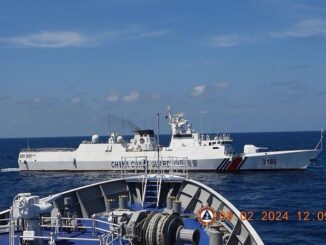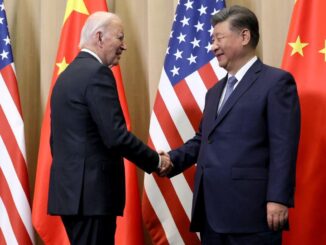
MANILA, Philippines — More than a year after creating a direct communication line on maritime issues, the Philippines and China have established a new mechanism that allows the presidential offices of both countries to reach each other through an emergency hotline.
The Department of Foreign Affairs confirmed that the “Arrangement on Improving Philippines-China Maritime Communication Mechanisms” would give Beijing and Manila various channels for communication to settle maritime issues amid more frequent scuffles in the West Philippine Sea.
The accord, which was first reported by the Associated Press, was signed last July 2 during the Philippines’ and China’s dialogue to de-escalate tensions following a violent altercation between both countries’ coast guards in Ayungin Shoal.
The agreement provides for direct lines of communication between the following:
- Representatives of the presidents of the Philippines and China
- The Philippines’ Department of Foreign Affairs (DFA) and China’s foreign affairs ministry, including at the secretary (foreign minister) and undersecretary (vice foreign minister) levels or through their designated representatives
The accord, once in effect, will also activate a communication channel between the Philippine Coast Guard and the Chinese Coast Guard (CCG), according to state-run Philippine News Agency.
In January 2023, the Philippines and China struck a similar deal that established a lower-level line of communication on maritime issues between the DFA and China’s department of boundary and ocean affairs under its foreign affairs ministry.
It’s unclear how this communication channel has helped both countries address its repeated confrontations in the West Philippine Sea since then.
But in February 2023, DFA spokesperson Teresita Daza said China used the communication mechanism to “narrate their position” following the CCG’s shadowing and use of military-grade laser against Filipino vessels.
Daza said that in response, the Philippines narrated what happened and “how we consider the incident as aggressive and also as threatening; and also, we hope that this does not actually continue.”
In June, one of the most violent altercations took place between both countries’ vessels after the CCG repeatedly rammed Filipino rigid-hull inflatable boats in an attempt to foil the Philippines’ resupply mission to BRP Sierra Madre.
The incident injured Philippine Navy servicemember, Seaman First Class Underwater Operator Jeffrey Facundo, who lost his thumb when he attempted to stop the “high-speed” ramming of the Chinese boat. At least seven others were also injured.
China considers almost the entire South China Sea, including waters referred to by the Philippines as the West Philippine Sea, to be its territorial waters.
The Philippines filed a case against China in 2013, and three years later, the Permanent Court of Arbitration ruled in favor of Manila, declaring China’s extensive claims had no legal basis. China to this day refuses to recognize the ruling even as other foreign powers have done so.





Be the first to comment